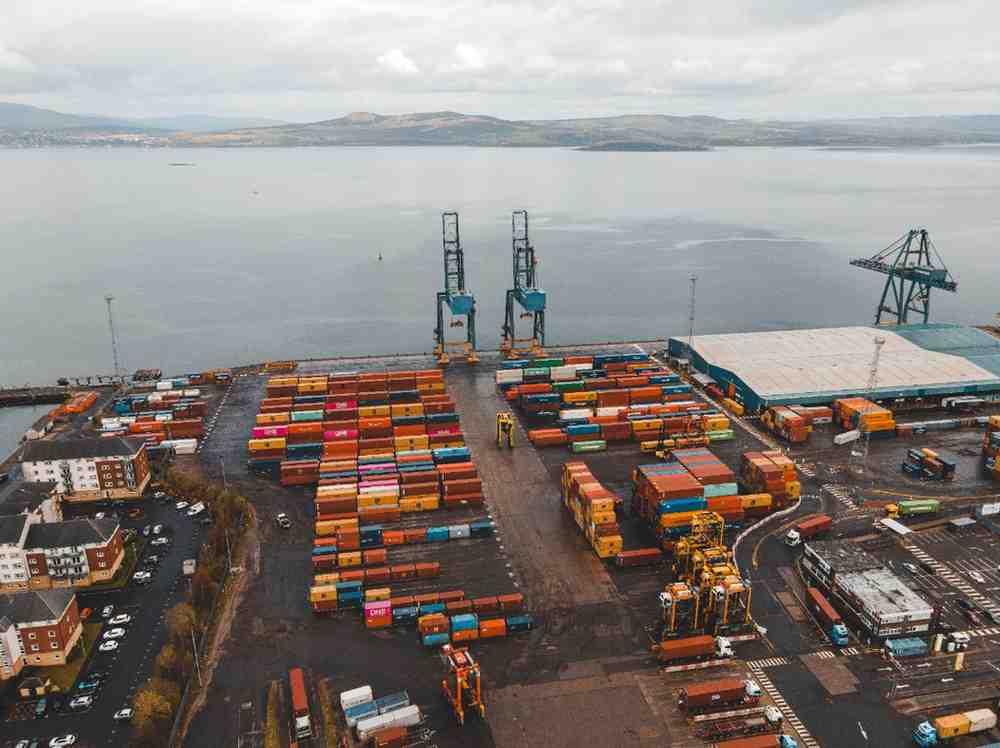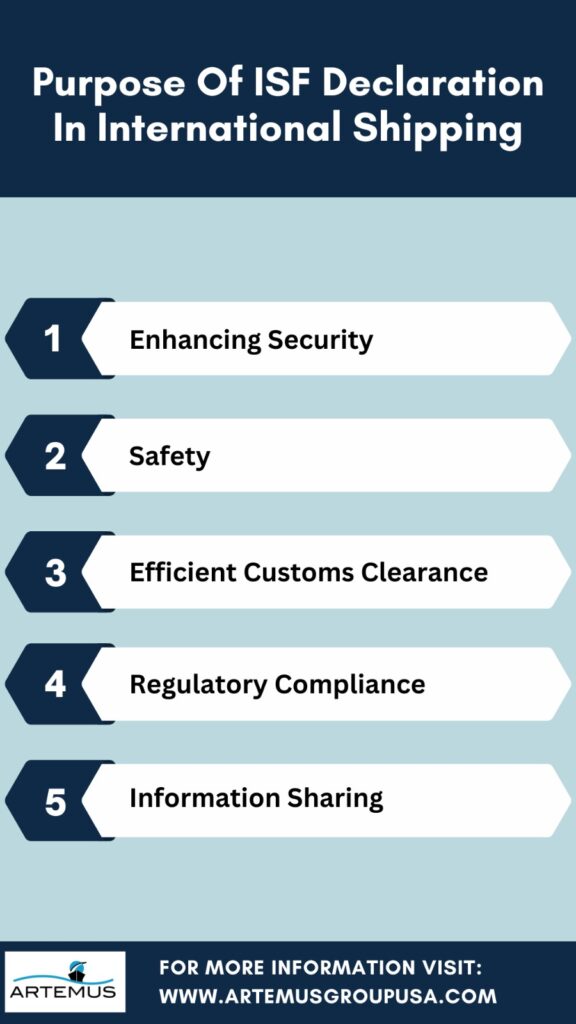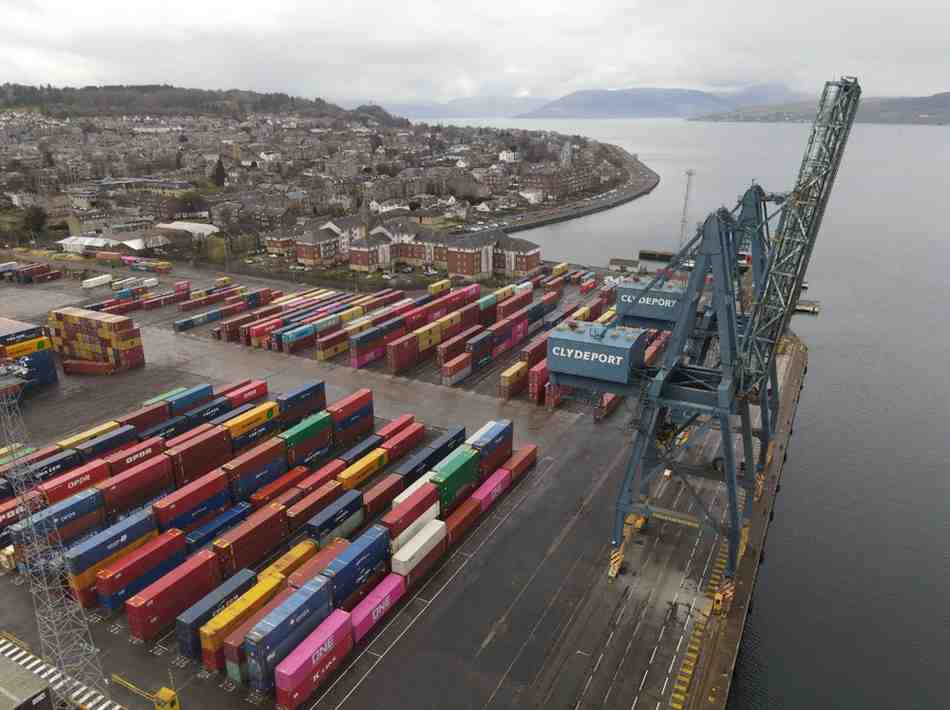
Export Car From USA To Canada: A Guide For 2025
Exporting a car from the USA to Canada can be a smooth process if you understand the necessary requirements. Both

In the intricate web of international trade, compliance with regulatory measures is a cornerstone for successful and seamless transactions. One such critical element is the Importer Security Filing (ISF), a set of pre-arrival data requirements mandated by U.S. Customs and Border Protection (CBP) to enhance the security of maritime shipments entering the United States. The ISF Declaration, requiring detailed information on cargo, plays a pivotal role in safeguarding the global supply chain and ensuring timely customs clearance.
As businesses navigate the complex landscape of customs compliance, the right technology can be a game-changer. Enter Artemus Transportation Solutions, a trailblazer in providing cutting-edge solutions for the logistics and trade industry. With a keen focus on facilitating compliance with ISF regulations, Artemus offers ISF Software designed to streamline the declaration process. In this comprehensive guide, we delve into the nuances of the ISF Declaration, shedding light on its significance and how Artemus’ innovative software solution empowers businesses to meet these stringent requirements with efficiency and precision.
Table Of Contents
The Importer Security Filing (ISF), also known as “10+2,” is a mandatory filing required by the U.S. Customs and Border Protection (CBP) to oversee the entry process for all sea freight imports into the United States.
It documents 12 details about a shipment, including information from the importer or supplier and the carrier, and must be transmitted to the CBP at least 24 hours before the vessel’s departure.
Failure to properly file the ISF can result in penalties, increased inspections, and delayed shipments. The ISF is specifically required for cargo arriving in the United States by ocean vessel and does not apply to cargo arriving by other modes of transportation
Related: ISF Filing: A Compliance-Related Guide & Software Solution

The Importer Security Filing (ISF) is a crucial requirement for ocean cargo imports to the United States, serving several purposes:
Related: ISF 5: Meaning, Compliance Requirements, & Best Practices
The Importer Security Filing (ISF) must be submitted to the U.S. Customs and Border Protection (CBP) at least 24 hours before the vessel departs for shipments entering the United States by ocean. This filing is a crucial requirement for ocean cargo imports to the United States and does not apply to cargo arriving by other modes of transportation.
The ISF involves the submission of 12 details about a shipment, including information from the importer or supplier and the carrier, and failure to comply with the ISF regulations can result in penalties, increased inspections, and delayed shipments.
Importers should work closely with their customs broker or freight forwarder to ensure timely and accurate filings to avoid penalties and delays.
Related: ISF 5 Filing Requirements: Data Elements & Audit Process
There are several popular methods for filing ISFs, which can be done through various platforms and services. Some of the most popular ISF filing methods include:
Related: ISF Fees (Import Security Filing): When & How To Pay?
Importer Security Filing (ISF) is a vital component of the customs clearance process, requiring meticulous attention to detail to ensure the smooth flow of goods across borders. Successfully completing an ISF filing involves a series of well-defined steps. In this guide, we break down the process, offering a comprehensive roadmap for businesses looking to navigate the complexities of ISF compliance.
Begin by collecting essential details about the shipment, including supplier information, container stuffing location, and a detailed description of the goods. Accuracy at this stage is paramount.
Identify the responsible party for submitting the ISF. This is typically the importer, but it’s crucial to establish this at the outset to avoid delays or inaccuracies.
Select the appropriate ISF form for your filing. The standard form requires information such as the shipper’s name and address, consignee details, and a precise description of the commodities being shipped.
Ensure the ISF is submitted to U.S. Customs and Border Protection (CBP) no later than 24 hours before the cargo is loaded onto the vessel. Timely submission is critical to compliance.
Thoroughly review all information entered in the ISF to validate its accuracy. Mistakes or discrepancies can lead to penalties and delays in the customs clearance process.
Consider leveraging advanced software solutions, such as Artemus’ ISF Software, to streamline the filing process. Automation can enhance accuracy and reduce the risk of human error.
Stay abreast of any changes to ISF regulations and requirements. Customs regulations can evolve, and being informed ensures ongoing compliance.
Regularly check the status of your ISF filing to address any issues promptly. Monitoring the status helps prevent complications during customs clearance.
Related: How To Check ISF Filing Status? A Step-By-Step Guide
Failure to adhere to ISF regulations can result in various penalties and consequences. Here are five detailed points outlining the penalties for non-compliance:
Related: ISF Late Filing Fee: Exact Cost & 6 Tips To Manage Appeals
Artemus’ ISF Filing Software stands as a cornerstone in achieving streamlined and efficient compliance with Importer Security Filing (ISF) requirements. Designed with the intricacies of international trade in mind, this software solution offers a user-friendly platform that empowers businesses to navigate the complexities of ISF regulations seamlessly.
Artemus simplifies the submission process, ensuring that essential cargo information is accurately reported to U.S. Customs and Border Protection (CBP) 24 hours before the vessel’s departure. By automating this crucial step in the customs clearance process, Artemus not only helps businesses avoid penalties associated with non-compliance but also contributes to a smoother and more predictable supply chain.
With Artemus’ ISF Filing Software, users can benefit from features such as real-time tracking and alerts, ensuring timely updates on the status of their ISF submissions. The software’s intuitive interface facilitates quick data entry and validation, reducing the risk of errors and delays.
Related: ISF Bond Cost Breakdown & Management For Import Success
An ISF (Importer Security Filing) declaration is a mandatory submission of specific information about ocean shipments entering the United States to enhance border security, typically consisting of 12 key details, and must be filed at least 24 hours before vessel departure.
Failure to file an ISF (Importer Security Filing) may result in penalties, increased inspections, and potential delays in shipments entering the United States.
The ISF (Importer Security Filing) filing fee varies but is typically determined by customs brokers or filing entities and can range from $30 to $150 per filing.

In conclusion, the Importer Security Filing (ISF) Declaration is indispensable for ensuring secure and efficient international shipping into the United States. Timely and accurate submissions are essential, and non-compliance may result in penalties and delays—innovative solutions like Artemus’ ISF Filing Software offer streamlined compliance, enhancing precision in global trade. Embracing the ISF Declaration’s importance and leveraging technology is key to success in international commerce.
Related: Late ISF Filing: What To Do If Missed The Deadline?

Exporting a car from the USA to Canada can be a smooth process if you understand the necessary requirements. Both

Japan’s trade system is central to its economy, with imports like raw materials and food supporting its industries and population.

Exporting cars from the USA involves complying with legal and customs regulations. It requires proper documentation, including title and registration,
Get In Touch
Artemus’ Software Solutions for ISF, AMS, Japan AFR, eManifest Canada, & Panama B2B filings.